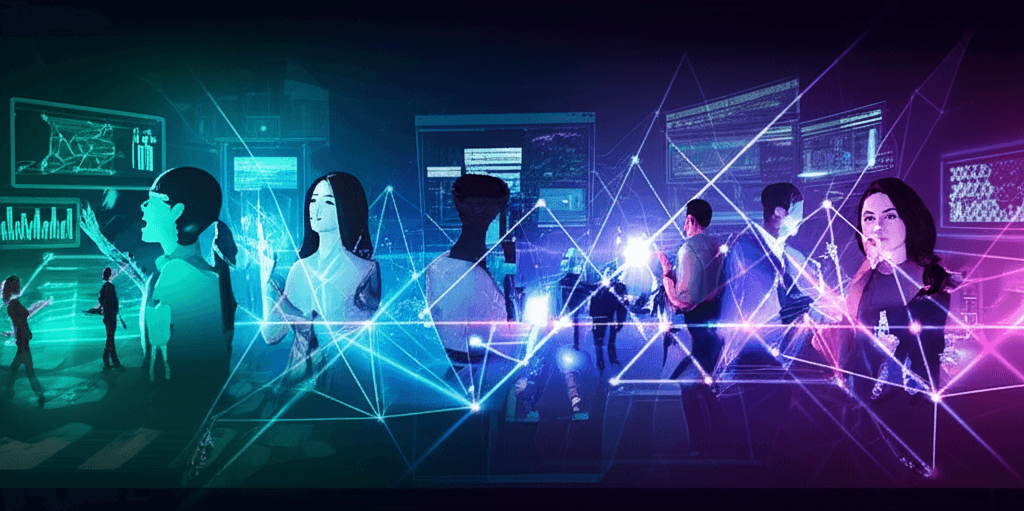Agentic AI Powers India's Tech Growth, Adding 3 Million New Jobs by 2030
Agentic AI: India poised for 3M new tech jobs and 10M role transformations, seizing a generational opportunity.
July 30, 2025

A groundbreaking study by enterprise software firm ServiceNow, conducted in partnership with learning company Pearson, projects that the rise of agentic artificial intelligence will create over 3 million new technology jobs in India by 2030. The "ServiceNow AI Skills Research 2025" also anticipates a massive workforce transformation, with agentic AI expected to redefine as many as 10.35 million existing roles within the same timeframe.[1][2][3] This signals a pivotal moment for India's vast talent pool, heralding a significant shift from process-driven tasks to innovation-led work.[2][3] The report underscores India's rapid advancement in AI maturity, positioning it as a leader in the Asia-Pacific region and presenting a "generational opportunity" to steer the global AI-ready talent landscape.[1][3] The findings suggest that while fears of job displacement due to automation persist, the evolution of AI will also be a powerful engine for creating new roles and augmenting human capabilities.
The core of the report's findings lies in the dual impact of agentic AI: the redefinition of existing jobs and the creation of entirely new ones. Agentic AI refers to systems that can operate autonomously, make decisions, and adapt to new tasks with minimal human intervention.[4] According to the research, this will lead to a spectrum of role evolution.[3] Roles with high potential for automation, such as payroll clerks and change managers, will see routine coordination tasks increasingly handled by AI agents.[1][2][3] Conversely, roles with high augmentation potential, like system administrators and implementation consultants, will involve professionals partnering with AI tools to enhance their capabilities.[1][2][3] The study identifies the manufacturing, retail, and education sectors as those that will experience the most significant transformation, with a projected impact on 8 million, 7.6 million, and 2.5 million roles, respectively.[1][2][3] Despite the automation of certain tasks, India's dynamic digital economy and large youth population are expected to fuel the creation of 3 million new tech jobs over the next five years.[1][2][3] This demand is already creating a talent crunch, with the current pool of under 100,000 agentic AI professionals falling short of the projected need for 200,000 by 2026.[5]
A key element identified in the ServiceNow study is the emergence of "AI Pacesetters"—organizations that are leading the way in AI adoption and transformation.[2][6][7] These companies are outpacing their peers in markets like Singapore and Australia and are distinguished by getting five key things right: a clear AI vision, a platform-first approach, the right mix of talent, strong governance, and scaled implementation of agentic AI.[2][7] This strategic approach is yielding tangible results, with 57% of these pacesetting enterprises reporting improved efficiency and productivity.[1][2][3] Furthermore, enterprises that have redesigned their workflows around AI have seen a 63% boost in productivity.[2][3] The strategies of these pacesetters offer a blueprint for other organizations. They emphasize a culture of innovation, often fostered through AI innovation centers, and leverage modern IT platforms with AI-powered workflows to break down operational silos.[8] This platform-centric thinking is crucial, as it enables the easier deployment of advanced AI tools at scale.[8] Pacesetters are also proactive in talent development, hiring AI specialists and investing in upskilling programs to ensure their workforce is prepared for an AI-driven future.[8]
The implications of this large-scale transformation for the Indian workforce are profound, necessitating a concerted effort in upskilling and reskilling. The nature of IT skills is fundamentally changing; capabilities like prompt engineering and AI-assisted development are becoming core competencies.[4] Professionals will need to understand how AI models function, their limitations, and how to fine-tune them for specific applications, shifting focus from manual coding to supervising and collaborating with AI.[4][9] This evolution is creating a demand for new roles such as AI configurators, experience designers, and data scientists, with Indian enterprises prioritizing hiring in these areas.[2][3] The demand is also driving up salaries significantly, with an agentic AI expert with a few years of experience earning more than three times the salary of a regular developer with similar experience.[5] To address this skills gap, initiatives like 'RiseUp with ServiceNow' are being implemented, aiming to equip individuals with high-demand digital skills through partnerships with universities and government programs.[10][11] This focus on building an AI-ready talent pool is seen as essential for India to maintain its leadership position in the global tech economy.[10][11]
In conclusion, the ServiceNow report paints a picture of significant opportunity for the Indian technology landscape, driven by the transformative power of agentic AI. While the automation of certain tasks is inevitable, the research strongly suggests that this will be more than offset by the creation of new roles and the augmentation of existing ones, ultimately leading to a net gain of over 3 million tech jobs by 2030.[1][2] The success of this transition, however, hinges on the ability of companies to adopt the strategies of "AI Pacesetters" by fostering a clear vision, leveraging integrated platforms, and, most importantly, investing in the continuous upskilling of their workforce.[2][7] For India, with its demographic advantages and burgeoning digital economy, embracing this AI-driven future presents a generational opportunity to not only redefine its own workforce but also to become a global leader in innovation and AI-ready talent.[2][3]